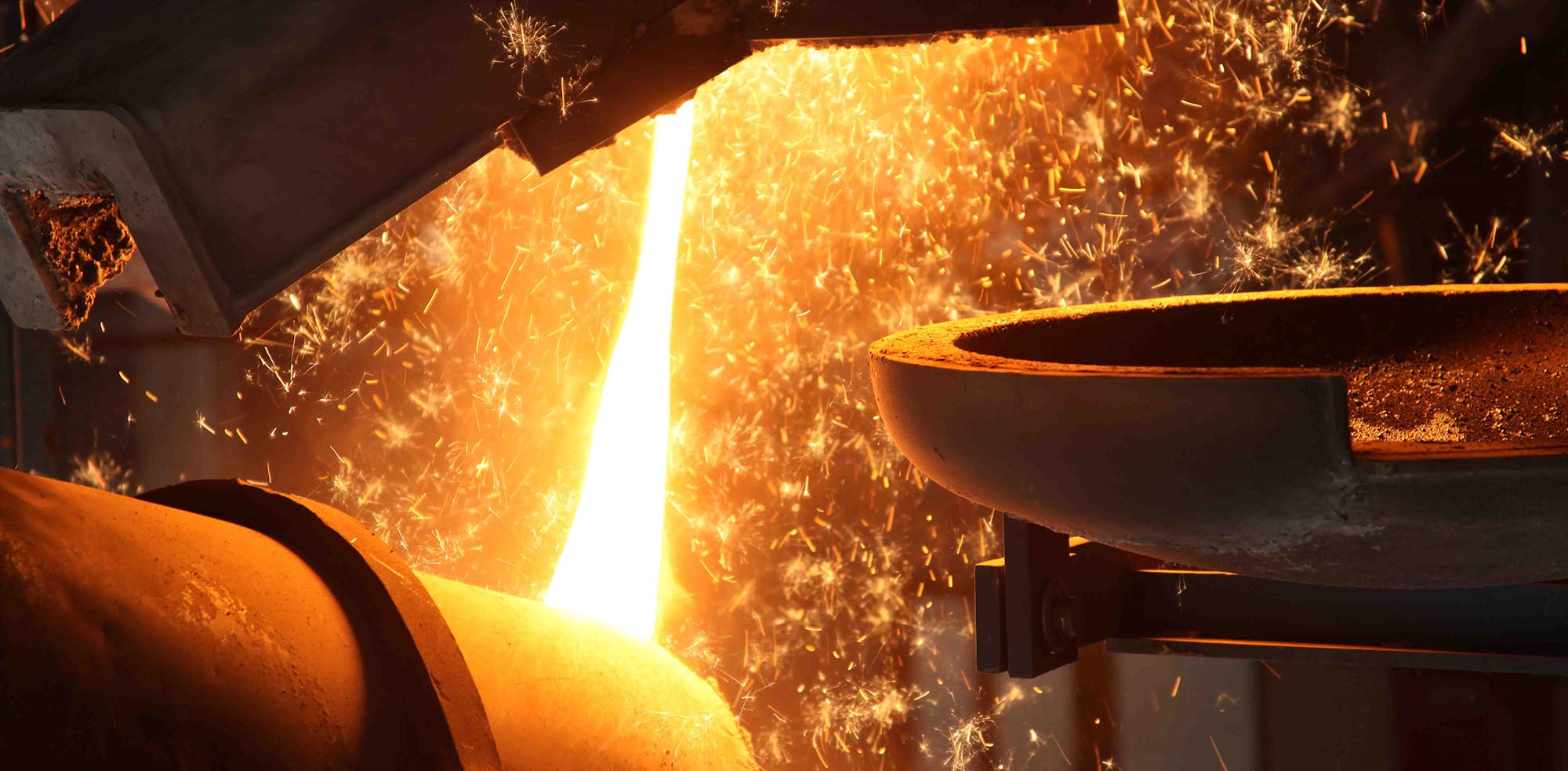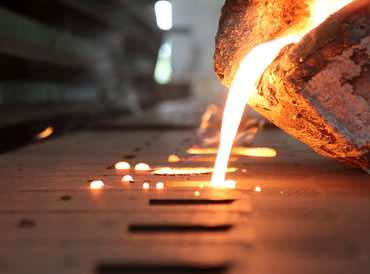How a Metal Foundry maintains quality control and efficiency
Wiki Article
Everything About Steel Foundries: Understanding Their Role in Modern Production
Metal factories are essential in the production landscape, offering vital services via different casting methods. These facilities transform liquified steel right into strong forms, accommodating diverse markets. As modern technology advances, foundries are adopting ingenious practices and rigorous high quality control steps. However, the ecological influence of steel casting elevates important inquiries. Recognizing these dynamics is substantial for grasping the full significance of foundries in modern production. What challenges and developments exist in advance for this market?
The Fundamentals of Metal Casting Methods
Metal spreading methods create the foundation of the metal factory sector, facilitating the makeover of molten metal right into strong objects. These methods incorporate numerous methods, each tailored to meet certain production requirements. Sand casting, among the earliest methods, employs sand molds to produce elaborate forms. Financial investment spreading, known for its precision, makes use of wax patterns coated in a ceramic covering, enabling in-depth styles. Pass away spreading, at the same time, relies upon high-pressure injection of molten metal into steel mold and mildews, generating premium and consistent parts.In addition, shed foam spreading offers advantages in creating intricate geometries without the need for conventional mold and mildew making. Each casting method plays an essential role in accomplishing desired mechanical homes, surface area finishes, and production volumes. As sectors progress, these strategies adapt to include advancements in innovation, making certain lasting and effective manufacturing processes. Understanding these fundamentals outfits stakeholders to make informed choices in steel manufacturing.
Types of Metals Made Use Of in Factories
In the domain of factories, the option of steels significantly impacts the spreading procedure and the end product's performance. Different metals are used, each offering distinctive qualities fit for different applications. Typically used metals consist of light weight aluminum, recognized for its lightweight and rust resistance; actors iron, which supplies outstanding wear resistance and machinability; and steel, valued for its strength and durability.In addition, copper alloys, such as bronze and brass, are preferred for their visual charm and excellent thermal conductivity. Specialty steels, like titanium and magnesium, are utilized in details sectors as a result of their one-of-a-kind residential or commercial properties, such as high strength-to-weight ratios.
The choice of metal eventually depends on the intended application, needed mechanical residential properties, and ecological considerations. Each kind of metal adds uniquely to the factory process and affects the total top quality and performance of the produced parts.
The Importance of Top Quality Control in Metal Foundries
Quality control plays a vital function in making sure that the products produced in steel shops meet industry criteria and client assumptions. This process entails systematic monitoring and evaluation of numerous phases of manufacturing, from resources selection to the final casting. Applying rigorous quality assurance measures aids determine issues early, reducing waste and revamp expenses.Factories employ a variety of testing methods, including visual inspections, dimensional checks, and metallurgical analyses, to confirm that the spreadings stick to defined resistances and material homes. Regular quality control not only enhances item dependability yet additionally builds client depend on and contentment.
Adherence to quality requirements typically leads to conformity with governing needs, which is substantial in industries such as aerospace and automotive. Finally, quality assurance is necessary for keeping the stability of the spreading procedure and making sure the long life of steel foundry products in competitive markets.
Advancements in Shop Innovation
Developments in innovation are reshaping the landscape of metal shops, enhancing effectiveness and product top quality. The assimilation of automation and robotics in factory operations has streamlined processes, lowering labor prices and reducing human mistake. Automated sand molding systems allow for faster manufacturing cycles and enhanced accuracy in casting forms. - Aluminum FoundryThe fostering of advanced simulation software program has reinvented the design stage, allowing designers to forecast and resolve prospective issues before physical production begins. This results in a considerable reduction in material waste and remodel.
Furthermore, innovations in 3D printing modern technology are enabling for the rapid prototyping of complex components, promoting faster layout version and modification. Finally, the development of brand-new alloys and products improves the efficiency of cast products, fulfilling the advancing demands of numerous industries. Collectively, these technologies are placing metal factories at the forefront of contemporary manufacturing, with the ability of providing premium products with better effectiveness.
Ecological Considerations in Steel Casting
As the metal spreading industry progresses, environmental considerations are becoming progressively vital. Growing understanding of environment modification and source deficiency has actually motivated factories to take on lasting techniques. This consists of decreasing energy consumption and using cleaner innovations, such as electric heaters and improved mold products that lessen exhausts.Recycling scrap metal has gained prestige, not just to preserve sources however also to lower garbage dump waste. Shops are additionally checking out alternate binders and layers that are much less hazardous to the environment.
Governing stress and consumer need for lasting products further compel the market to innovate. Cooperation with environmental companies aids steel foundries identify finest practices and develop techniques for waste management.
Often Asked Concerns
What Are the Key Industries That Depend On Steel Foundries?
The main sectors that depend on steel foundries consist of vehicle, aerospace, building, and machinery production. These industries depend on cast metal parts for their products, making certain resilience and efficiency in various applications and environments.Exactly How Do Factories Make Sure Worker Safety And Security Throughout Metal Spreading Processes?
Foundries execute stringent Metal Foundry security protocols, including personal protective equipment, air flow systems, and normal training programs. By keeping track of discharges and temperature levels, they decrease hazards linked with metal spreading, making sure a much safer working setting for employees.What Abilities Are Important for Workers in a Steel Shop?
Necessary skills for employees in a steel factory consist of technological proficiency in machinery procedure, attention to information, analytical abilities, safety recognition, teamwork, and strong interaction skills to efficiently collaborate in a dynamic production environment.How Do Shops Deal With Waste Products and Recycling?
Shops take care of waste materials through methodical collection, partition, and recycling procedures. They frequently repurpose metal scraps, utilize purification systems for toxins, and collaborate with reusing centers to minimize ecological influence and promote sustainability within their procedures.
What Is the Common Preparation for Metal Spreading Projects?
The normal preparation for steel spreading tasks varies from numerous weeks to a few months, depending upon elements such as intricacy, products needed, and production capability. Timelines may differ based upon certain project demands.Metal shops are essential in the production landscape, supplying essential services through various casting methods. Metal Casting. Steel casting methods create the foundation of the metal factory sector, promoting the makeover of liquified metal right into strong items. In the domain name of shops, the option of metals considerably influences the casting process and the last product's efficiency. Quality control plays an essential function in making certain that the items produced in metal shops fulfill sector criteria and consumer assumptions. The major sectors that count on steel shops include automobile, equipment, aerospace, and building production
Report this wiki page